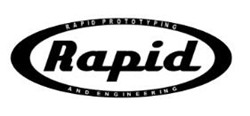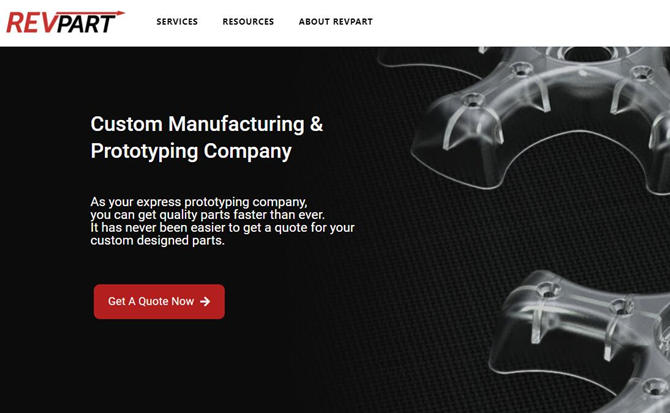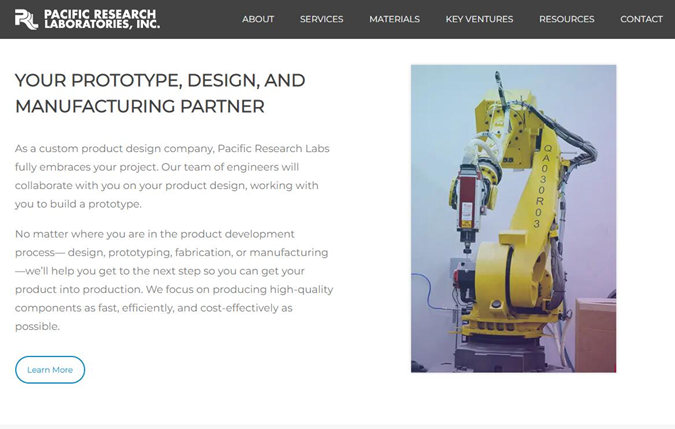Are you in need of rapid prototyping or low volume production services for your product? Look no further! In this article, we will be showcasing some of the best manufacturers in the industry who can help bring your ideas to life.
From 3D printing to CNC machining, these companies have the skills and experience to produce high-quality prototypes and small batch productions quickly and efficiently. Get ready to take your product development process to the next level!
Related Blog:
Table of Contents

Protolabs Company Rapid Prototyping Service
Protolabs was Founded in 1999 by Larry Lukis, with the goal of revolutionizing the traditional manufacturing process for injection-molded plastic prototype parts. They developed complex software that could communicate with a network of mills and presses to produce plastic and metal parts in a fraction of the time.
In the coming years, they plan to continue expanding our injection molding capabilities. This includes introducing new technology that will allow them to create a wider range of plastic parts in a shorter amount of time.
In addition to injection molding services, they will also be introducing quick-turn CNC machining. This will allow them to produce high-precision metal parts with greater speed and efficiency.
Furthermore, they plan to open new facilities in Europe and Japan to better serve our global customer base. These facilities will be equipped with the latest technology and staffed by experienced professionals, allowing them to provide customers with the highest quality products and services.

Quickparts Company Rapid Prototyping Manufacturing
Quickparts, a leader in the rapid prototyping and low volume production business. They realized that there was a growing need in the industry for a global network of facilities and access to new technologies and materials.
To meet this need, Quickparts has made significant investments in creating an extensive global network of manufacturing partners. This wide array of resources and partners allows Quickparts to provide customers with access to the latest technology, materials, processes and services.
Quickparts’ commitment to quality is supported by an ISO 9001:2015 certified quality management system that ensures all parts conform to customer requirements. Additionally, they are investing heavily in innovations such as 3D printing which allow them to manufacture complex parts quickly and cost-effectively.
The company also offers a variety of other services including design optimization, material selection assistance, inventory management programs and more.

Xcentric Company Mold Rapid Prototyping Services
Located in Michigan USA, Xcentric is the leader supplier of rapid injection molding, CNC machining, and additive manufacturing services.
With their quick turnaround times and superior craftsmanship, they provide the best quality parts for a variety of applications such as prototyping, low volume production runs, product testing and more.
Xcentric’s advanced technology enables them to quickly produce plastic components in any material with close tolerance specifications at a fraction of the cost.
Their team of experienced engineers is dedicated to providing customers with innovative solutions that are tailored to their specific requirements while maintaining strict quality standards. In addition to offering top-notch services, their customer support team provides timely responses and helpful advice throughout the entire process.
Overall, Xcentric is committed to delivering high-quality parts in a fraction of the time so clients can get their products into the market faster.

GoProto Inc Plastic & Metal Part Manufacturing
Based in San Diego, California USA, GoProto is a one-stop supplier for all your rapid prototyping and low volume production needs. They provide quick turnaround times, top quality parts, and excellent customer service to ensure you get the best product possible.
With GoProto, complex designs are no problem — they specialize in producing custom plastic and metal parts that meet even the most demanding specifications. Whether it’s prototype development or low-volume production runs, their team of experts will use state-of-the-art technology to produce parts quickly and accurately.
Plus, they offer comprehensive assembly services so you can save time and money while ensuring that every component is assembled correctly. With GoProto’s commitment to excellence, your next project will be completed with accuracy and efficiency.
From concept to completion, GoProto is dedicated to helping you bring your ideas to life quickly and affordably.

RevPart Company Custom Manufacturing & Prototyping Service
Founded in 2014, RevPart is one of the leading companies when it comes to rapid prototyping and low-volume production. They are committed to providing customers with top-notch quality prototypes that are delivered fast.
Their capabilities include 3D printing, plastic and metal machining, as well as laser cutting and engraving services. They use advanced technologies such as CAD/CAM software, CNC milling machines and lathes, injection molding machines, 3D printers and other equipment to deliver the highest level of precision in every product they create.
At RevPart, they offer a wide range of solutions for product design and manufacturing. Their rapid tooling services enable customers to quickly move from idea to prototype, helping them bring their products to market faster.
They have a team of experienced engineers who are dedicated to delivering value to customers by producing quality prototypes quickly and efficiently. Their team consists of highly skilled professionals who strive for perfection in every project they undertake.

LA NPDT Rapid Prototyping Company
The LA New Product Development Team is an innovative group of innovators, engineers and entrepreneurs focused on creating products from the ground up.
From concept to creation, they specialize in bringing ideas to life by utilizing rapid prototyping and low volume production. This team brings a unique combination of expertise that allows them to craft products quickly and efficiently while also staying ahead of the market trends.
They have a proven track record for turning visions into reality; their impressive portfolio includes projects ranging from consumer electronics to healthcare solutions. They have a deep understanding of their clients’ needs and are able to offer creative solutions tailored around those requirements.
Additionally, they employ cutting-edge technologies such as 3D printing, CNC machining, laser cutting and injection molding in order to achieve quick turnaround times with quality results.

Schmit Prototypes On-Demand Parts Manufacturing Company
Founded in 1980, Schmit Prototypes has been a leader in the rapid prototyping and low volume production industry since 1980. Located in Wisconsin, it began as a small garage business that quickly grew to become one of the most respected names in the field. With a reputation for excellence, Schmit Prototypes is one of the top manufacturers in this competitive market.
The company prides itself on providing high quality products by using cutting edge technology and innovative practices. The team of experienced engineers at Schmit Prototypes design, develop, test and validate every product to ensure customer satisfaction with their services. By utilizing advanced 3D printing machines and utilizing various materials during production, they are able to make sure that each product meets all international standards for quality control.
The team of project managers that take the time to understand your product requirements and can provide guidance on design for manufacturability (DFM), materials selection, quality assurance plan development, process optimization, and more. They offer a wide range of services including concept validation, short-run prototype development, and full production runs.

Fathom Digital Manufacturing Rapid Prototyping Services
For brands looking for reliable rapid prototyping services, Fathom offers a wide range of additive manufacturing rapid prototyping technologies that can meet any need or budget. With decades of experience in the field, their stereolithography (SLA) and selective laser sintering (SLS) processes have been used to create parts quickly and accurately for product development projects both large and small.
Fathom’s mission is to make it easy and affordable to produce 3D-printed prototypes while maintaining an exceptional level of quality. Their team understands that speed is essential when customers are working on tight deadlines. For this reason, they offer a variety of services including 3D printing, CNC machining and other custom fabrication solutions to ensure customers get their parts as soon as possible without sacrificing quality.

Laszeray Technology LLC Rapid Prototyping Services
Laszeray Technology is an industry leader in design support and manufacturing of world-class products, parts and tooling. Their experienced team of engineers have the knowledge to create innovative solutions for a wide variety of industries.
Laszeray Technology has a history of producing high-quality products with superior customer service and satisfaction. They strive to remain at the forefront of rapid prototyping technologies, allowing them to provide customers with cutting edge solutions that meet their needs.
Their mission is to provide reliable manufacture services while excelling in quality control procedures that maximize efficiency and cost savings.
Their comprehensive range of services ensures that they can deliver on time without compromising on quality or safety standards. They use modern technologies such as CNC machining, 3D printing, injection molding and more in order to produce prototypes and low volume production runs quickly, efficiently and cost effectively for clients.

Sculpteo Company Rapid Prototyping Services
Sculpteo is the leading additive manufacturing production center for rapid prototyping and low-volume production. With a wide range of services, they provide customers with parts at any desired quantity ranging from 1 to 100k parts.
No matter the application, Sculpteo has an extensive selection of 30 materials that can be used for your project. This makes it easier to find the right material that best suits you need. Additionally, their quick turnaround time allows you to get your parts quickly without having to wait weeks or months.
Their innovative 3D printing technology produces high quality parts with great accuracy and repeatability, ensuring that no part is ever flawed or defective.
With Sculpteo’s online platform, customers are able to upload their designs in just a few simple steps and track their orders from beginning to end in real-time.

Advanced Prototype Molding Rapid Prototyping 3D Printing
Advanced Prototype Molding Company (APM) boasts over 40 years of experience with building prototypes and bringing them to life. Founded in 1975, the company has grown from a small business providing prototype design and manufacturing services to a recognized leader in rapid prototyping and low-volume production.
With its cutting-edge technologies and unmatched expertise, APM is one of the most influential companies in today’s prototyping industry. From concept to completion, APM offers an efficient production process that ensures the highest quality standards for both part accuracy and durability.
With its deep commitment to customer satisfaction, APM strives to provide the best possible service at competitive prices with rapid turnaround times. Whether it’s a single prototype or large-scale production run, APM can deliver on time without sacrificing quality or performance.

Stratasys Rapid Prototyping with 3D Printing
Stratasys, a global leader in additive technology solutions, is one of the top 50 manufacturers of rapid prototyping and low volume production. The Israel-based company has since been recognized for its innovative approach to providing cost-effective 3D printing solutions to businesses around the world for more than 30 years.
With a product portfolio ranging from prototyping systems to large-scale production machines, Stratasys offers comprehensive solutions for industries like Aerospace, Automotive, Consumer Products, Design, Education and Healthcare.
The company’s flagship products are its PolyJet and FDM fabrication systems that offer superior accuracy and resolution for producing parts with complex geometries in an array of materials including plastic and metal.
Additionally, Stratasys’ engineering services provide custom design solutions for customers who need additional support when bringing their ideas to life through 3D printing.

RCO Engineering Company Rapid Prototyping Services
At RCO Engineering, they are creative designers and engineers, accomplished prototype builders, testing experts, and comprehensive production specialists. They offer a range of capabilities to meet the needs of customers.
Their team is proficient in small part manufacturing with 3D printing, CNC machining, injection molding , and die casting. With years of experience in rapid prototyping and low-volume production runs, they have become one of the leading manufacturers in the industry since 1973.
Their team is well-versed in CAD/CAM software for product design as well as 3D scanning for reverse engineering existing parts or assemblies. Furthermore, their comprehensive quality assurance process ensures that every part meets our high standards before being released for delivery. In addition to providing competitive prices on prototypes and short-run productions, they also provide guidance to help you reduce costs while meeting your product specifications on time.

Prototek Rapid Prototyping & Low-Volume Production
Prototek Manufacturing is a fast turn fabricator of high quality, precision sheet metal and CNC machined products Since 1987 . Located in New Hampshire, Colorado, Pennsylvania, Wisconsin & California, Prototek offers quick turnaround times and competitive pricing for rapid prototyping, low volume production runs and short-run orders.
Their experienced staff is highly skilled in a variety of technologies such as laser cutting, CNC milling, forming and welding to create complex components that can be machined, finished and assembled to exact customer specifications.
The company specializes in prototype design engineering services including 3D CAD modeling, fabrication engineering services and product development support to help customers bring their ideas to life quickly.
They are capable of producing parts from metals such as aluminum, stainless steel and titanium with tolerances as tight as 0.001” or less for Sheetmetal work and 0.

Empire Group USA Inc Product Development Prototype Manufacturing
Founded by Jason Enos in 1999, Empire Group is a full-service product development and manufacturing company. They offer a unique one-stop-shop for all of your product development and manufacturing needs. They specialize in rapid prototyping, low volume production, and more. Their experienced team of engineers and technicians are committed to delivering the highest quality products in the industry.
They understand that creating a successful product can be challenging. That’s why they offer comprehensive services that make the process easy from concept to completion. They provide engineering expertise to ensure accuracy throughout the design process while utilizing cutting-edge technologies like 3D printing, CNC machining, injection molding, urethane casting, vacuum forming, and more.
At Empire Group they continuously strive to exceed customer expectations through our commitment to quality and service excellence.

Rapid Prototyping & Engineering Inc
Founded by David Flick in 1991, Rapid Prototyping & Engineering Inc has been providing quality engineered and machined castings, billet components, fixturing and tooling solutions to customers who typically operate under tight deadlines.
They specialize in rapid prototyping and low volume production of custom parts from any material – from plastics to metals. Their experienced technical staff will work with you every step of the way to ensure that your finished product meets all your requirements for speed, cost-effectiveness, accuracy and performance.
Their commitment to superior manufacturing is demonstrated by their use of advanced technology throughout our process. This includes a wide array of state-of-the-art CNC machines that allow them to quickly turn around orders while maintaining precise tolerances and dimensions. They also offer onsite design services so that they can make sure your product is created with exact precision according to your specifications.

Pacific Research Prototyping & Engineering Services
Pacific Research Laboratories provides the utmost quality in product development services, offering their expertise and guidance to businesses across the United States. With a team of highly skilled engineers and technicians, they specialize in rapid prototyping and low-volume production, allowing customers to customize each step of the process with their guidance.
From concept design through production, Pacific Research Laboratories offers comprehensive services specifically tailored to meet individual customer needs.
The company prides itself on its reputation for delivering both timely results and exceptional customer service. Pacific Research Laboratories works with clients from all industries including medical device manufacturing, consumer goods, automotive components and more to ensure that their products are developed with precision accuracy.
As one of the top manufacturers in the USA for rapid prototyping and low volume production services, Pacific Research Laboratories guarantees an efficient workflow without compromising quality or detail.

Midwest Prototyping A Prototek Company
Midwest Prototyping is a leading force in the rapid prototyping and additive manufacturing industry, integrating advanced 3D printing technologies and high-end industrial machinery to create top of the line products.
The company has been creating durable, quality parts since its establishment in 2001 and has consistently stayed ahead of the curve on modern production methods. Their commitment to utilizing cutting edge technology combined with their expert staff makes Midwest Prototyping one of the best manufacturers for low volume production needs.
The company’s innovative approach to rapid prototyping has resulted in a wide range of products that can be used for various applications including automotive, aerospace, medical industries and more. With over 10 years of experience working with top-tier clients such as HP and DSM, Midwest Prototyping is well versed on how to produce accurate results while adhering to quality standards set by industry leaders.
Rex Plastics Rapid Plastic Prototyping Services
Rex Plastics is a second generation, family-owned and operated full-service plastic injection molding contract manufacturer. They make it a priority to provide customers with the highest quality products in a timely and cost effective manner.
Their team of experienced engineers take pride in their commitment to helping clients meet their most challenging manufacturing objectives. As one of the best manufacturers of rapid prototyping and low volume production, they are dedicated to utilizing the latest technologies to ensure that every product meets customers’ needs perfectly.
Their vast experience allows them to work with companies from virtually any industry sector including aerospace, automotive, medical device, consumer electronics, agriculture and many more. By utilizing advanced techniques such as 3D printing and CNC machining they can quickly produce highly accurate prototypes for performance testing before mass production begins.
Realize Inc Custom 3D Printing and Rapid Prototyping
Realize Inc is a leading 3D printing and rapid prototyping service provider that has been independently owned since its founding in 1999. For more than two decades, Realize Inc has been setting the standard for quality and consistency in the 3D printing industry. Their extensive list of services is tailored to meet all customer needs, offering both individualized production projects as well as large-scale manufacturing solutions.
At Realize Inc, customer satisfaction is their number one priority. They prioritize transparency with their clients and strongly believe that communication drives innovation. In addition to providing top-notch services, they also value the culture within their organization — hiring experienced team members who are passionate about delivering excellence at every stage of the process.
FAQs About Rapid Prototyping Manufacturing & Low-Volume Production
What is rapid prototyping?
Rapid prototyping is a method of quickly creating a physical model of a product or design using a 3D printer or other automated manufacturing equipment.
This allows designers and engineers to test the form and function of a design, and make any necessary changes, before committing to full-scale production. Rapid prototyping can be used in a wide range of industries, including automotive, aerospace, medical, and consumer products.
It can save time and money by allowing designers to quickly iterate on their designs and identify potential problems before they become expensive to fix.
Why choose rapid prototyping and low volume production ?
There are several reasons why a company might choose to use rapid prototyping and low volume production.
First, rapid prototyping allows companies to quickly and inexpensively create physical models of their designs, which can be used for testing, evaluation, and demonstration purposes. This can be especially useful for companies that are developing new products, as it allows them to iterate on their designs and make any necessary changes before committing to full-scale production.
Second, low volume production can be a cost-effective way to produce small batches of products, such as prototypes, test products, or custom products. Because the production is done on a small scale, it can be more flexible and responsive to changes in the design or production process.
Third, rapid prototyping and low volume production can also be useful for companies that are looking to reduce their inventory levels or reduce the time it takes to bring a product to market. By producing small batches of products on demand, companies can reduce the amount of inventory they need to hold, and can respond more quickly to changes in customer demand or market conditions.
Overall, rapid prototyping and low volume production can provide companies with a number of benefits, including improved speed, flexibility, and cost-effectiveness in the product development and manufacturing process.
How Long Will it Take to Build A Prototype?
The time it takes to build a prototype can vary greatly depending on the complexity of the design and the resources available. A basic prototype could take as little as a few days to a few weeks. More complex prototypes could take several weeks to a few months.
Which Industries Rapid Prototyping Manufacturing & Low Volume Production Used for?
Rapid prototyping and low-volume production are used in a wide range of industries, including:
– Aerospace
– Automotive
– Medical
– Industrial
– Consumer Products
– Defense
– Electronics
– Energy
– Construction
– Food & Beverage
– Robotics
– Sporting Goods
What is an example of rapid prototyping?
One example of rapid prototyping is the use of a 3D printer to create a physical model of a product design. With a 3D printer, a designer can create a digital model of a product and then use the printer to quickly produce a physical version of the design.
This allows the designer to test the form and function of the product, and make any necessary changes, before committing to full-scale production.
For example, a designer might use a 3D printer to create a prototype of a new phone case. The designer would create a digital model of the case, specifying its dimensions, shape, and materials.
The 3D printer would then produce a physical version of the case, using plastic or other materials, in a matter of hours or even minutes. The designer could then test the prototype to see how it fits the phone, how it feels in the hand, and whether it provides the desired level of protection.
If necessary, the designer could make changes to the digital model and produce another prototype to test again. This iterative process can be repeated until the design is finalized.
How much does rapid prototyping cost?
The cost of rapid prototyping can vary depending on a number of factors, including the type of technology used, the size and complexity of the prototype, and the materials used.
In general, 3D printing is considered one of the most affordable methods of rapid prototyping, with prices starting at around $100 for a small, simple prototype.
More complex prototypes or those made from higher-end materials may cost more. For example, a prototype made using SLA technology, which offers higher resolution and accuracy, may cost several hundred dollars or more.
Is rapid prototyping the same as 3D printing?
Rapid prototyping and 3D printing are similar, but they are not the same thing. Rapid prototyping is a general term that refers to any process that uses technology to quickly create a physical model of a product or design.
3D printing is one type of rapid prototyping technology, in which a digital model is converted into a physical object by depositing layers of material on top of each other.
Therefore, all 3D printing is a type of rapid prototyping, but not all rapid prototyping is 3D printing. There are other rapid prototyping technologies, such as stereolithography (SLA) and selective laser sintering (SLS), that do not use the same layering process as 3D printing.
These technologies may be better suited for certain applications, depending on the desired properties of the prototype.
General Rapid Prototyping Process
The general process for rapid prototyping typically involves the following steps:
Design: The first step in the rapid prototyping process is to create a digital model of the product or design that will be prototyped. This can be done using computer-aided design (CAD) software, which allows the designer to specify the dimensions, shape, and materials of the prototype.
Selection of technology: Once the design is complete, the next step is to choose the rapid prototyping technology that will be used to create the prototype. Different technologies have different capabilities and limitations, so it’s important to choose the one that is best suited to the specific requirements of the prototype.
Printing or fabrication: The next step is to use the chosen rapid prototyping technology to produce the physical prototype. This typically involves loading the digital model into the rapid prototyping machine, which then creates the prototype by depositing layers of material, using lasers or other methods.
Post-processing: Once the prototype has been printed or fabricated, it may need to undergo additional post-processing steps, such as cleaning, painting, or assembly, to prepare it for testing or evaluation.
Testing and evaluation: The final step in the rapid prototyping process is to test and evaluate the prototype to ensure that it meets the desired specifications and requirements. This may involve functional testing, durability testing, or other types of testing, depending on the specific requirements of the prototype. Based on the results of the testing, the design may be revised and another prototype may be produced. This iterative process can be repeated until the final design is satisfactory.
How to Choose Your Best Rapid Prototyping Manufacturing & Low Volume Production?
The capabilities of rapid prototyping and low volume production can vary depending on the specific technology and processes used.
However, in general, the rapid prototyping manufacturer should be able to create physical prototypes or products with a high degree of accuracy and detail, and can be tailored to meet the specific requirements of the design.
Some of the key capabilities of rapid prototyping and low volume production include:
The ability to quickly produce physical prototypes or products, allowing for rapid iteration and testing.
The ability to produce prototypes or products with complex geometries and fine details.
The ability to produce prototypes or products using a wide range of materials, including metals, plastics, ceramics, and composites.
The ability to produce small batches of products on demand, without the need for large-scale production runs.
The ability to produce customized or personalized products, such as custom-fit medical devices or personalized consumer products.
Overall, the capabilities of rapid prototyping and low volume production can provide designers and manufacturers with a high degree of flexibility and precision in the product development and manufacturing process.
Why Choose CNC Machining for Rapid Prototyping?
CNC machining can be used as a rapid prototyping process, particularly for the production of metal parts.
In CNC machining, a digital model of the part is created using computer-aided design (CAD) software, and then a computer-controlled milling machine is used to cut the part from a block of material (such as metal or plastic).
This allows for the quick and accurate production of parts with complex geometries and fine details.
CNC machining can be particularly useful for rapid prototyping when the prototype needs to be made from metal, as it allows for the production of strong, durable parts that can withstand testing and evaluation.
Additionally, CNC machining can be used to produce functional prototypes that can be used for testing in real-world conditions, such as in a vehicle or other piece of equipment.
Overall, CNC machining can be a valuable rapid prototyping process for the production of metal parts, allowing for the quick and accurate production of functional prototypes.
Why Choose Rapid Sheet Metal Fabrication for Rapid Prototyping?
Rapid sheet metal fabrication can be a useful rapid prototyping process for the production of metal parts or products.
This process involves cutting, bending, and forming sheet metal into the desired shape, using specialized equipment such as lasers, punches, or presses.
Rapid sheet metal fabrication allows for the quick and accurate production of complex metal parts, with tight tolerances and smooth surfaces.
There are several reasons why a company might choose rapid sheet metal fabrication for rapid prototyping. Some of the key benefits of this process include:
Speed: Rapid sheet metal fabrication is a relatively fast manufacturing process, allowing for the quick production of prototypes or small batches of products.
Precision: Rapid sheet metal fabrication allows for the production of highly accurate and detailed parts, with tight tolerances and smooth surfaces.
Flexibility: Rapid sheet metal fabrication can be easily adapted to produce a wide range of different parts, in different shapes, sizes, and materials. This allows for a high degree of flexibility in the design and production process.
Cost-effectiveness: Rapid sheet metal fabrication can be cost-effective for producing small batches of parts, as it does not require the same level of setup and tooling as traditional manufacturing processes.
Overall, rapid sheet metal fabrication can be a valuable rapid prototyping process for the production of metal parts, allowing for the quick and accurate production of functional prototypes.
Rapid Prototyping Available Finishes: What Are The Options?
There are a variety of finishes that can be applied to rapid prototypes to improve their appearance and functionality. Some of the most common rapid prototyping finishes include:
Painting Finishes: This is a common finish for rapid prototypes, as it allows for the creation of a wide range of colors and textures. Painting can be done using a variety of methods, including spraying, brushing, or dipping.
Plating Finishes: Plating is a process in which a thin layer of metal (such as copper, nickel, or gold) is applied to the surface of the prototype, using an electrochemical process. Plating can improve the appearance and durability of the prototype, and can also provide electrical or thermal conductivity.
Anodizing Finishes: Anodizing is a process in which a protective layer of oxide is formed on the surface of the prototype, using an electrical current. Anodizing can improve the durability and corrosion resistance of the prototype, and can also be used to create a range of colors.
Powder Coating Finishes: Powder coating is a process in which a dry powder of resin and pigment is applied to the surface of the prototype, and then cured using heat. Powder coating can provide a durable, smooth, and attractive finish for the prototype.
Overall, the choice of finish for a rapid prototype will depend on the specific requirements of the design, as well as the intended use and appearance of the prototype.








